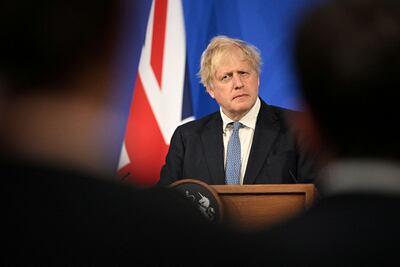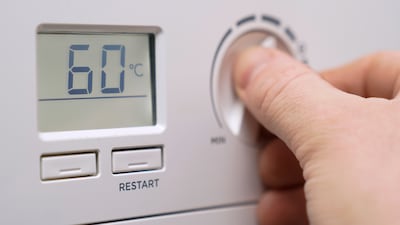Jonathan Brearley, the chief executive of Ofgem, the UK’s energy regulatory body, recently announced that his organisation is expecting an energy price cap of £2,800 in October, an increase from the current £1,971. Adam Scorer, chief executive of charity National Energy Action, said the predicted rise will "strike terror into the hearts of millions of people who are already unable to heat their homes".
European countries obtain approximately 40 per cent of their gas directly from Russia, while the UK imports less than 5 per cent of its gas from Russia, but its prices are nonetheless influenced by fluctuations in global markets. The UK also imports approximately 8 per cent of its oil from Russia, amounting to £4 billion in 2021. These prices have soared as a result of Russia’s invasion of Ukraine and Western governments’ subsequent economic ordeals. In April, Russian President Vladimir Putin demanded that “unfriendly countries” pay for their gas in roubles from Russian accounts to avoid having their supplies cut off. Gas deliveries have already been suspended to Finland for their refusals to pay in the currency.
It is not just energy prices that have risen exponentially, but food prices, too. Ukraine is the world’s largest exporter of sunflower oil and is also a major producer of maize and wheat. The UN Food Prices Index, which measures the average prices of staple foods, reported that food prices are at their highest in 60 years, when records began.
East End resident Rachel who was diagnosed with cancer and who also cares for her severely disabled son with a spinal injury is struggling with the cost of food. She said: “How are we supposed to eat with food costs rising not by a penny but by 80 per cent? We are eating the bare minimum and living on basic food, which affects my health and that of my son. Luckily it's summer so I don’t use the lights. In the late evening I don’t turn on the lights and if I watch TV I use that as the light. I’m charging up my key meter to over £120 a month for me and my son – and that’s just electricity. I’m paying more for gas because I need to keep warm, even in the summer, due to our medical problems. I can’t bear to think how we are going to keep warm when the cold weather arrives.”

Rachel and her son are just one of many thousands of families across the UK who cannot afford to eat. A survey by YouGov, a leading pollster, suggests that of the 10,674 adults questioned, one in seven were living in homes where people have skipped meals or reduced sizes due to expense. The Office for National Statistics reported that almost 90 per cent of households stated that their cost of living had increased in March as a result of rises in fuel, food and borrowing costs.
The cost of living crisis is all about survival. Millions of households have been plunged into debt, leaving many at risk of losing their homes and livelihoods, and affecting their mental and physical wellbeing. Dr Andrew Goddard, president of the Royal College of Physicians said: “The cost of living crisis has barely begun, so the fact that one in two are already experiencing worsening health should sound alarm bells, especially at a time when our health service is under more pressure than ever before.”
Earlier this month, Tory MP Lee Anderson – who earns £84,144 – said he had proven that people can make meals for 30 pence, demeaning the struggles of British families. Boris Johnson’s Government has been heavily criticised by all sides of the political spectrum, including some Tory MPs, for his catastrophic failure to address the escalating cost of living in the UK.
The question is why should a family in Britain go to such lengths to survive when the Conservative government breaks Covid-19 rules that they created, while lecturing poor families to live within their means?

Liberal Democrat leader Ed Davey was the first party leader to call for a windfall tax on oil and gas companies over seven months ago, demanding that their excess profits help vulnerable people with spiralling energy bills. Even Tory MP Julian Knight said the Prime Minister needs to “wake up” and listen to his party on tackling the rising cost of energy. Engulfed in its own “partygate” Covid-19 rule-breaking saga, the Prime Minister and his Chancellor scrambled to announce a new package of emergency measures on Thursday, which intends to target pensioners, the poorest and the “squeezed middle” households.
The UK’s increasing cost of living crisis has been caused by multiple issues occurring simultaneously, including Brexit, Covid-19, the Ukraine crisis, rising taxes and inflation, all of which have impacted the price of essential items and services pushing people into poverty.
They say that we should look for opportunities out of crises. It's time for the UK Government to stop doing so. It is time to look for opportunities to take our struggling children and young people, our families, our older citizens and all our communities out of this fear of whether we turn the lights on or not, whether we keep warm and what we eat. To the UK government I say: “Ask not what your country can do for you — ask what you can do for your country.


